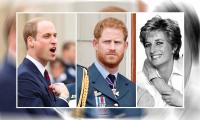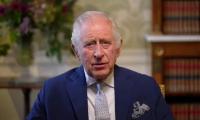Who commands whom?
News Analysis
By Ansar Abbasi
November 11, 2015
ISLAMABAD: What should have been discussed and debated with the civilian leadership behind closed-door meeting has been conveyed by the military leadership through a press release.
ISPR’s press release, issued on Tuesday, on the Corps Commanders Conference’s decisions and discussions, is bound to create misunderstandings between the civilian and military leadership. It would also give an opportunity to those who are desperate to see the two sides getting at each others’ throats.
The ISPR press release showed the military as being the head of the civilian government, which has been conveyed through the media that the military is though satisfied with its role against terrorism, feels that the civil government is not doing enough.
Under the constitutional framework, the military comes under the civilian government. But this press release certainly shows otherwise and raises the question who commands whom? What has been informally believed and said about the civil-military imbalance in favour of the military has been formally and vocally endorsed by the ISPR release.
The press release while quoting the Army Chief appreciating the military operation said, “He, however, underlined the need for matching/complimentary governance initiatives for long term gains of operation and enduring peace across the country. Progress of National Action Plan’s implementation, finalization of FATA reforms, and concluding all ongoing JITs at priority, were highlighted as issues, which could undermine the effects of operations.”
Not sure why the military opted to say this in public and that too within 24 hours after the high-level meeting between Prime Minister, Army Chief and their top aides.
The military should have discussed all this in the closed door meeting instead of making a public statement for the embarrassment of the civilian side, which under the constitution has the superior role of a boss.
Besides raising constitutional and legal questions, such a statement from the military command would hardly help better coordination between the civil and military sides for the achievement of goals mutually decided by them. Instead, it would create misunderstandings, which in the present situation would be seriously hurting for Pakistan.
There are definitely issues of governance. There are also shortcomings in the implementations of the National Action Plan.
But if this is not the fact that what has been achieved so far against terrorism and extremism is unprecedented, and is the consequence of the inputs from both the military and the civilian side including government, parliament and the courts.
If the Pakistan Army is doing well in the combat zones and is giving great sacrifices; the parliament has contributed by passing 21st constitutional amendment, the civilian leadership unanimously approved National Action Plan and reached the consensus of setting up military courts while the apex court endorsed the setting up of these courts.
Because of this contribution from all institutions, extraordinary achievements have been made to bring peace in Karachi and Baluchistan, and to check terrorism.
Prime Minister has been praising the military and its top leadership on every occasion, both inside the country and at international forums, for their role in the fight against terror. Not sure who is the target of the ISPR’s press release but it has certainly caused an embarrassing situation for the Prime Minister, who is the chief executive of the country.
Governance issues and the wrongs of decades don’t get settled overnight. The government might be slow in setting the things in the right direction for which the military should put its pressure to get the things expedited. However, it should not be done publicly but behind the close doors.
ISPR’s press release, issued on Tuesday, on the Corps Commanders Conference’s decisions and discussions, is bound to create misunderstandings between the civilian and military leadership. It would also give an opportunity to those who are desperate to see the two sides getting at each others’ throats.
The ISPR press release showed the military as being the head of the civilian government, which has been conveyed through the media that the military is though satisfied with its role against terrorism, feels that the civil government is not doing enough.
Under the constitutional framework, the military comes under the civilian government. But this press release certainly shows otherwise and raises the question who commands whom? What has been informally believed and said about the civil-military imbalance in favour of the military has been formally and vocally endorsed by the ISPR release.
The press release while quoting the Army Chief appreciating the military operation said, “He, however, underlined the need for matching/complimentary governance initiatives for long term gains of operation and enduring peace across the country. Progress of National Action Plan’s implementation, finalization of FATA reforms, and concluding all ongoing JITs at priority, were highlighted as issues, which could undermine the effects of operations.”
Not sure why the military opted to say this in public and that too within 24 hours after the high-level meeting between Prime Minister, Army Chief and their top aides.
The military should have discussed all this in the closed door meeting instead of making a public statement for the embarrassment of the civilian side, which under the constitution has the superior role of a boss.
Besides raising constitutional and legal questions, such a statement from the military command would hardly help better coordination between the civil and military sides for the achievement of goals mutually decided by them. Instead, it would create misunderstandings, which in the present situation would be seriously hurting for Pakistan.
There are definitely issues of governance. There are also shortcomings in the implementations of the National Action Plan.
But if this is not the fact that what has been achieved so far against terrorism and extremism is unprecedented, and is the consequence of the inputs from both the military and the civilian side including government, parliament and the courts.
If the Pakistan Army is doing well in the combat zones and is giving great sacrifices; the parliament has contributed by passing 21st constitutional amendment, the civilian leadership unanimously approved National Action Plan and reached the consensus of setting up military courts while the apex court endorsed the setting up of these courts.
Because of this contribution from all institutions, extraordinary achievements have been made to bring peace in Karachi and Baluchistan, and to check terrorism.
Prime Minister has been praising the military and its top leadership on every occasion, both inside the country and at international forums, for their role in the fight against terror. Not sure who is the target of the ISPR’s press release but it has certainly caused an embarrassing situation for the Prime Minister, who is the chief executive of the country.
Governance issues and the wrongs of decades don’t get settled overnight. The government might be slow in setting the things in the right direction for which the military should put its pressure to get the things expedited. However, it should not be done publicly but behind the close doors.
-
 Andrew's Reasons For Giving Sarah Ferguson A Rent-free Home For 30 Years After Divorce Finally Finds An Answer
Andrew's Reasons For Giving Sarah Ferguson A Rent-free Home For 30 Years After Divorce Finally Finds An Answer -
 Charlie Puth Reveals Wake-up Moment That Made Him Quit Alcohol
Charlie Puth Reveals Wake-up Moment That Made Him Quit Alcohol -
 Meghan Trainor Welcomes Baby Girl Mikey Moon Trainor And Turns Emotional
Meghan Trainor Welcomes Baby Girl Mikey Moon Trainor And Turns Emotional -
 Why Keith Urban's Daughters Are Avoiding His Rumored Girlfriend? Source
Why Keith Urban's Daughters Are Avoiding His Rumored Girlfriend? Source -
 Sarah Ferguson Led Andrew To Jeffrey Epstein: ‘She Wanted Him To Ask For More Money’
Sarah Ferguson Led Andrew To Jeffrey Epstein: ‘She Wanted Him To Ask For More Money’ -
 Blake Lively Claimed Justin Baldoni 'made A Monster' Of Her, Court Docs Reveal
Blake Lively Claimed Justin Baldoni 'made A Monster' Of Her, Court Docs Reveal -
 Prince William Accused Of 'harsh Decisions' Over Disgraced Royal
Prince William Accused Of 'harsh Decisions' Over Disgraced Royal -
 Dolly Parton Gets Major Surprise On 80th Birthday
Dolly Parton Gets Major Surprise On 80th Birthday -
 Jennifer Lawrence Revisits Viral Kourtney Kardashian Comment: 'Insane'
Jennifer Lawrence Revisits Viral Kourtney Kardashian Comment: 'Insane' -
 Prince William, Kate Middleton Engage In Fierce Curling Match In Scotland
Prince William, Kate Middleton Engage In Fierce Curling Match In Scotland -
 Charlie Puth Admits He Was 'very Cringe' During Early Fame
Charlie Puth Admits He Was 'very Cringe' During Early Fame -
 Prince William’s ‘failed’ Mother Diana Sparks Another Row With Prince Harry: ‘It’s Crossing A Line’
Prince William’s ‘failed’ Mother Diana Sparks Another Row With Prince Harry: ‘It’s Crossing A Line’ -
 Jennifer Garner Reflects On Special Bond With Mark Ruffalo
Jennifer Garner Reflects On Special Bond With Mark Ruffalo -
 King Charles Stuck With Supporting Prince Harry 'great Cause'
King Charles Stuck With Supporting Prince Harry 'great Cause' -
 Nicola Peltz Is 'the Issue' In Beckham Drama, Ex Stylist Claims
Nicola Peltz Is 'the Issue' In Beckham Drama, Ex Stylist Claims -
 Expert Speaks Out On Andrew’s Vicious Circle With Jeffrey Epstein Of Information Trading & Honey Traps
Expert Speaks Out On Andrew’s Vicious Circle With Jeffrey Epstein Of Information Trading & Honey Traps



